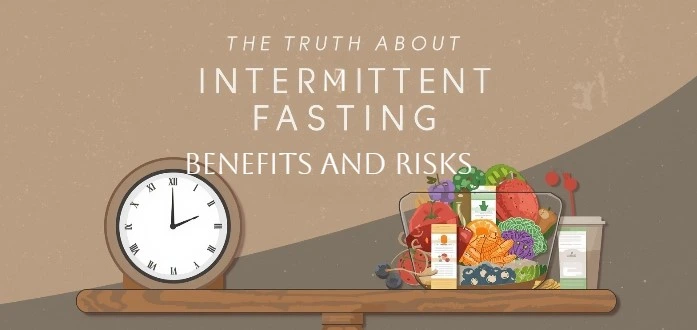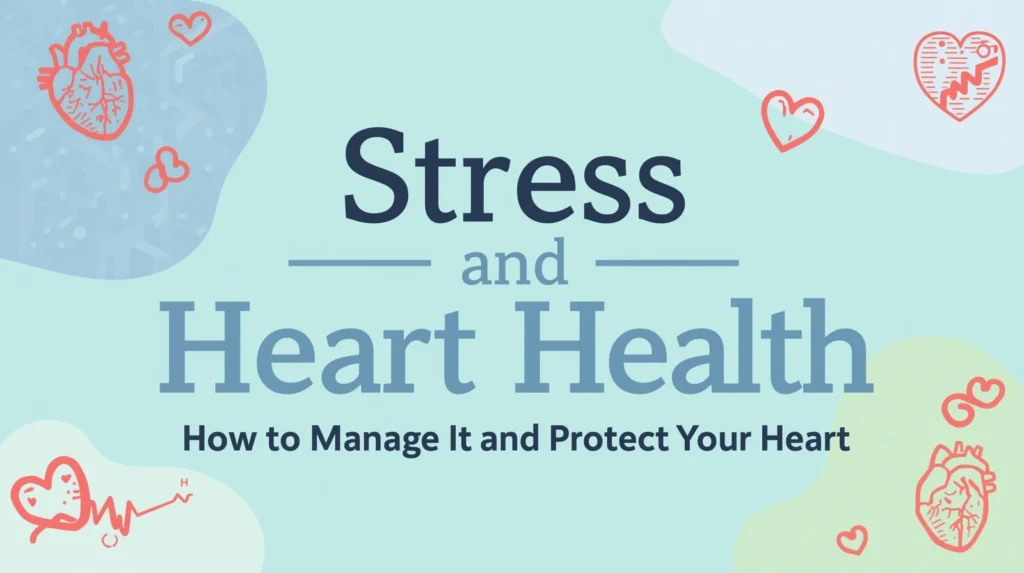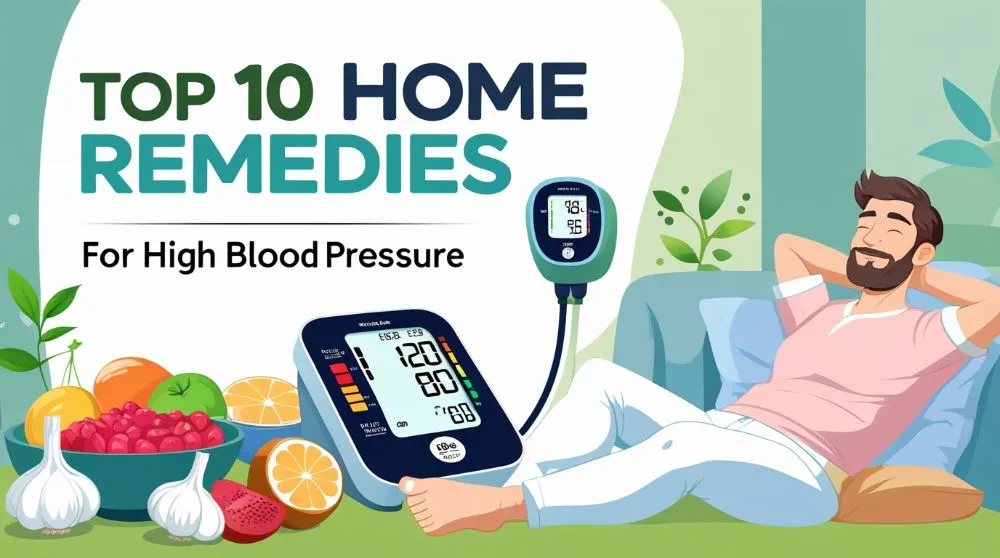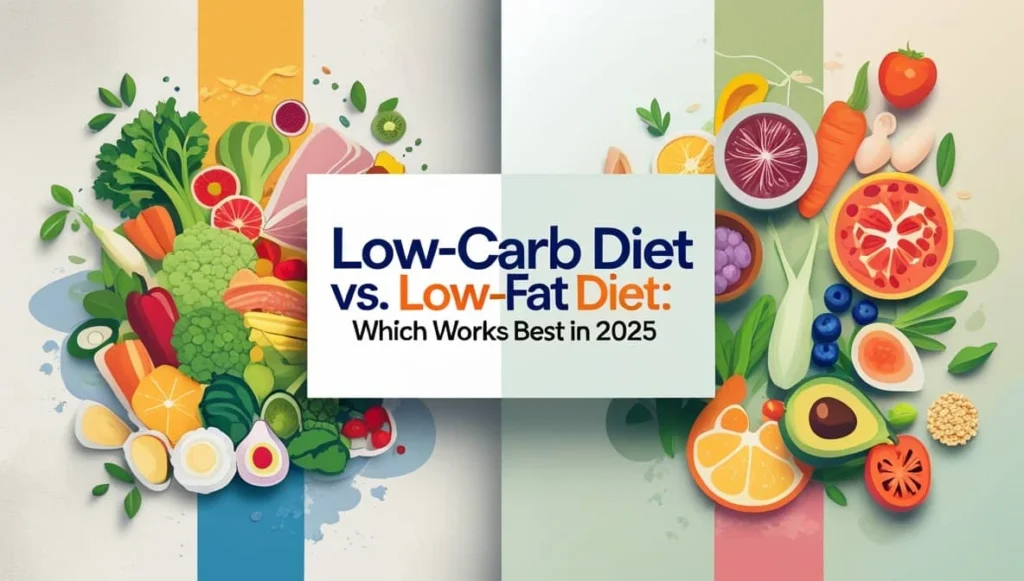Intermittent fasting (IF) is one of today’s most popular health and fitness trends. Intermittent fasting benefits and risks vary; some people report that it has helped them lose weight, enhance their health, and simplify their lives. Studies show that it might aid in improving brain and heart health. However, if you decide to try it, make sure you select the best choice for you and do it safely.
What is Intermittent Fasting and How Does it Work
Intermittent fasting (IF), an eating pattern characterized by alternating periods of eating and fasting, has gained substantial attention in recent years due to its possible health advantages and lifetime extension.
IF does not define the meals to consume, but rather when to eat them. This implies it’s not a diet but rather an eating habit.
Common IF approaches include fasting for 16 hours and eating within an 8-hour timeframe. Some people observe 24-hour fasts twice a week.
How Does it Work?
First, insulin levels decrease, and human growth hormone (HGH) levels rise. Additionally, the cells in your body alter gene expression and start critical cellular repair mechanisms.
When you fast, your body goes through the following changes:
- HGH: Your HGH levels rise. Both muscle growth and fat reduction may benefit from this.
- Insulin: Insulin levels fall and insulin sensitivity increases during fasting. Reduced insulin increases the availability of stored body fat.
- Cellular repair: Your cells start cellular repair activities while you fast. This includes autophagy, which is the process by which cells break down and eliminate accumulated, defective proteins.
- Gene expression: Genes linked to lifespan and illness prevention may act differently during a fast.
Intermittent Fasting Methods
Intermittent fasting (IF) can be practiced in various ways, but all involve dividing the day or week into eating and fasting periods.
During the fasting periods, you can drink calorie-free beverages such as water, herbal tea, and black coffee.
There are three types of fasting: zero-calorie alternate-day fasting (ADF), modified alternate-day fasting (MADF), twice-per-week fasting diet (TWF), and time-restricted eating (TRE).
- ADF:
consists of alternating days of total fasting with days of unrestricted eating.
- MADF:
alternates between days of unrestricted eating and fasting, with caloric intake ranging from 0% to 40%, or 0-600 kcal per day, for 3-5 days per week.
- TWF:
fasts twice a week with caloric intake varying from 0% to 40%, or 0-600 kcal per day, and eats normally on the other five days. TRE fasts from 12 to 24 hours each day.
For many people, shortening their meal period decreases the quantity of calories they consume on a daily basis. This can help gain intermittent fasting benefits.
Health Benefits of Intermittent Fasting
According to studies, intermittent fasting benefits and risks vary, but IF benefits are remarkable and may help with weight control and general health.
Intermittent fasting has been shown to increase human and animal lifespans, promote weight loss, and treat a variety of diseases.
It also has a favorable effect on human tissue-specific microbiomes and reduces organellar apoptosis.
The primary health advantages of intermittent fasting are as follows:
- Weight loss: Without actively limiting calories, intermittent fasting can assist you in reducing body fat and weight. can help people shed approximately 250 calories each day.It decreases hunger hormones such as ghrelin, resulting in decreased hunger in the evening and more consistent hunger levels throughout the day.
- Insulin resistance: When your body doesn’t react to insulin as it should, it raises blood sugar levels. Intermittent fasting can help lower insulin resistance. You can prevent type 2 diabetes by controlling your blood sugar levels.
- Inflammation: A major cause of many chronic illnesses; some research indicates declines in indicators of inflammation.
- Intermittent fasting also reduces oxidative stress, which is linked to illnesses such as cancer and heart disease.
- Brain health: Research on rats has indicated that fasting raises the brain hormone BDNF and may promote the development of new nerve cells.
- It may also enhance important biomarkers of aging and circadian rhythms.
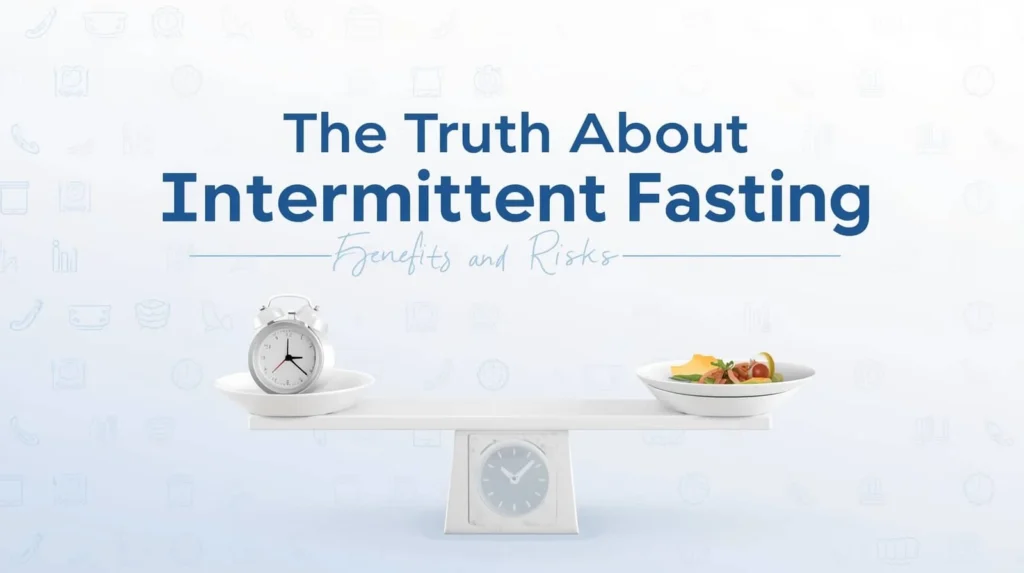
Common Myths About Intermittent Fasting Explained
Intermittent fasting has gained traction as a method for shedding pounds and enhancing general wellness. Nevertheless, with its rising popularity, numerous myths and misconceptions have also emerged. Here are several common misconceptions about intermittent fasting.
1. Myth: Intermittent Fasting has a Negative Impact on Sex Hormones
Research shows that in healthy people, intermittent fasting benefits do not consistently interfere with sex hormones (such as testosterone and estrogen).
Although some studies have shown alterations (in PCOS patients, for instance), these results are premature and contradictory.
2. Myth: Abnormally High Muscle Mass Loss Results From Intermittent Fasting
In actuality, studies reveal that muscle loss from fasting is comparable to that from other calorie-restricted diets.
According to a meta-analysis, independent of diet type, about 75% of weight loss is fat and about 25% is lean mass.
Lean mass can be maintained with resistance training and enough protein.
3. Myth: The quality of Your Diet Would Suffer if You Fast Intermittently
Research indicates that during IF, nutritional intake (fiber, protein, fat, sugar, etc.) frequently remains consistent with pre-IF levels.
4. Myth: Intermittent Fasting May Cause Eating Issues
Short-term studies with healthy persons often show that intermittent fasting does not cause eating problems.
However, dietitians state that intermittent fasting may not be appropriate for people who are prone to developing disordered eating habits.
5. Myth: Intermittent Fasting Will Treat Type 2 Diabetes
Intermittent fasting benefits include helping to put type 2 diabetes into remission, according to certain short-term studies, but there is not enough data to declare it a cure.
The benefits are generally linked to weight loss and better insulin sensitivity, rather than intermittent fasting itself. The long-term viability, safety, and consequences are still unclear.
6. Myth: Intermittent Fasting Promotes Long-term Weight Loss
Some studies have found that intermittent fasting resulted in higher weight loss over a year than eating with larger windows, although this is not guaranteed.
Dietitians note that maintaining weight loss over time can be difficult, and diet and behavior assistance is crucial.
Safety Tips and Who Should Avoid Intermittent Fasting
To get all the intermittent fasting benefits without exposing yourself to IF hazards, follow these cautions:
- Don’t start with long fasts right away. Begin with shorter fasting windows like 12 or 14 hours.
- Keep hydrated and drink plenty of water throughout the day, such as unsweetened drinks like black coffee, herbal tea, or green tea.
- Break Your Fast with Healthy Foods, such as veggies, lean proteins, healthy fats, and complex carbs.
- Don’t overcompensate, because eating too much right after fasting can undo its benefits and upset your digestion.
- Pay Attention to Your Body. Adjust or stop if it doesn’t feel right.
- Be Smart Around Workouts. Try light workouts first and see how you feel.
- Avoid fasting when you’re unwell or stressed.
- Watch Your Electrolytes. Consider supplements or broths to avoid imbalances (especially sodium, potassium, and magnesium).
- Make It Flexible, Not Rigid. If it’s making life harder or affecting your well-being, change the method or take a break.
- Check with Your Doctor First.
Individuals Who Should Consider Avoiding or Exercising Caution
Intermittent fasting can be useful for some people but may not be appropriate for everyone. It may produce hunger and headaches at first, but the body will eventually adjust.
If you develop weakness, anxiety, anger, or problems concentrating, discontinue intermittent fasting and see your doctor.
Increase your water intake to avoid dehydration.
Intermittent fasting is not recommended for:
- people who are underweight.
- have an eating disorder.
- are pregnant or breastfeeding.
- are children or teenagers or are beyond the age of 60.
- If you are taking cancer or diabetic medication.
- Ask your doctor if intermittent fasting is safe for you.
- Individuals with a history of eating disorders.
- Furthermore, individuals with type 1 or type 2 diabetes should only continue with medical guidance due to potential risks like low blood sugar.
Intermittent fasting benefits vary between weight loss, improving metabolism, and boosting mental clarity. While it may not suit everyone, it offers a flexible and research-backed way to enhance overall health. Always a healthcare provider before starting.
Reference
- Beth Ann Mayer. (2024, July 3). 7 Widespread Myths About Intermittent Fasting Debunked by Dietitians.
- Gunnars, K. (2024, May 3). Intermittent Fasting 101 — The Ultimate Beginner’s Guide.
-
Australia, H. (2024, February 16). Intermittent fasting.
-
The health benefits of intermittent fasting | Harvard T.H. Chan School of Public Health. (2025, September 24).
- Sun, M.-L., Yao, W., Wang, X.-Y., Gao, S., Varady, K. A., Forslund, S. K., … Wu, Q.-J. (2024). Intermittent fasting and health outcomes: an umbrella review of systematic reviews and meta-analyses of randomised controlled trials.

